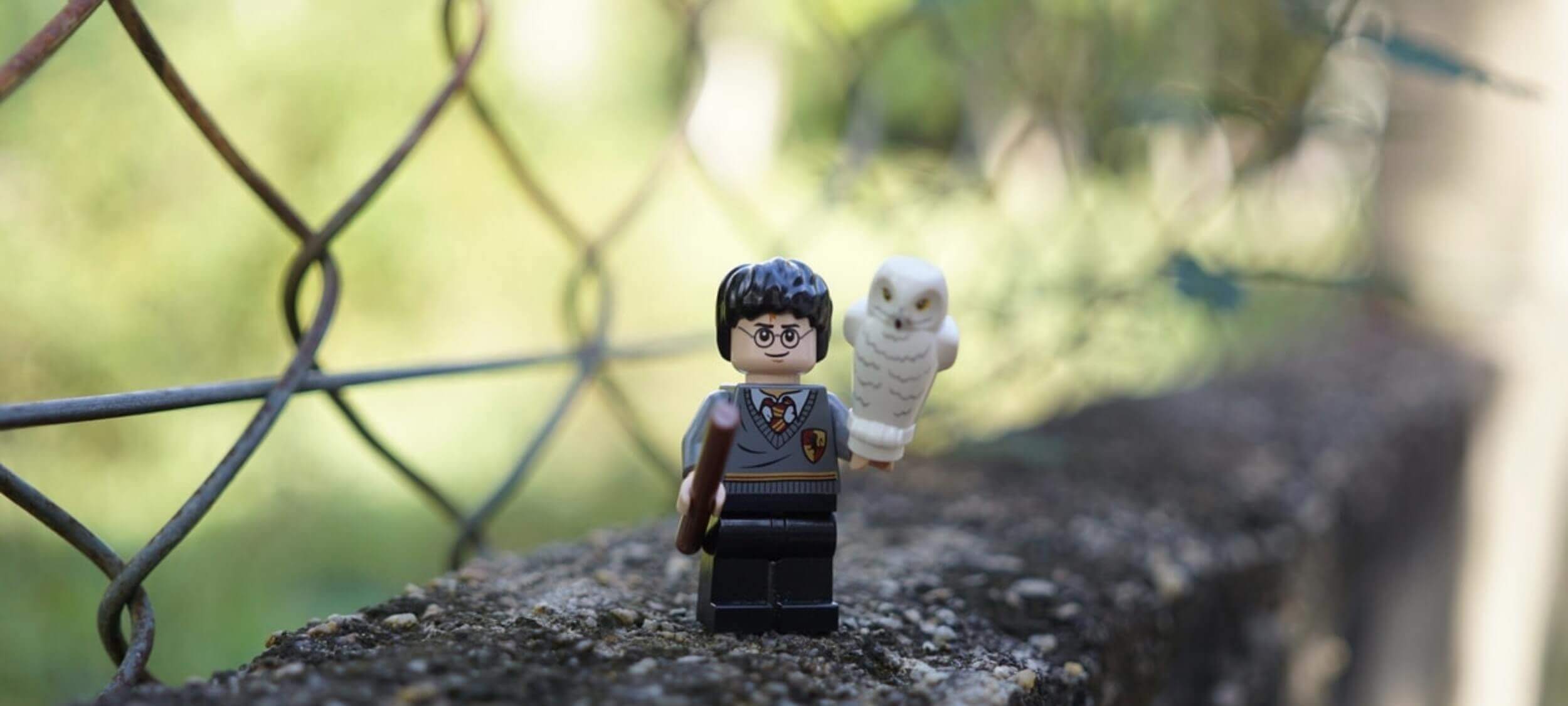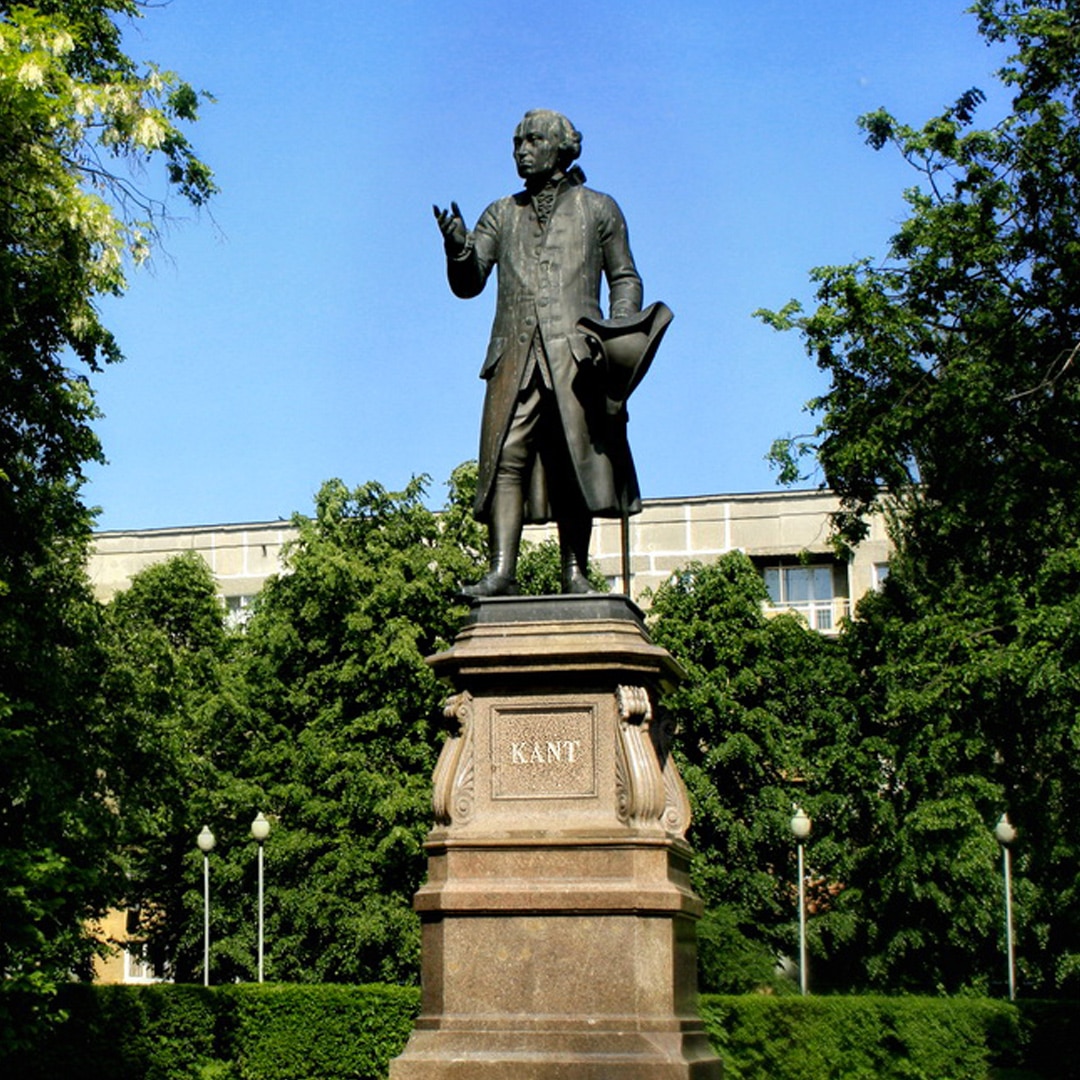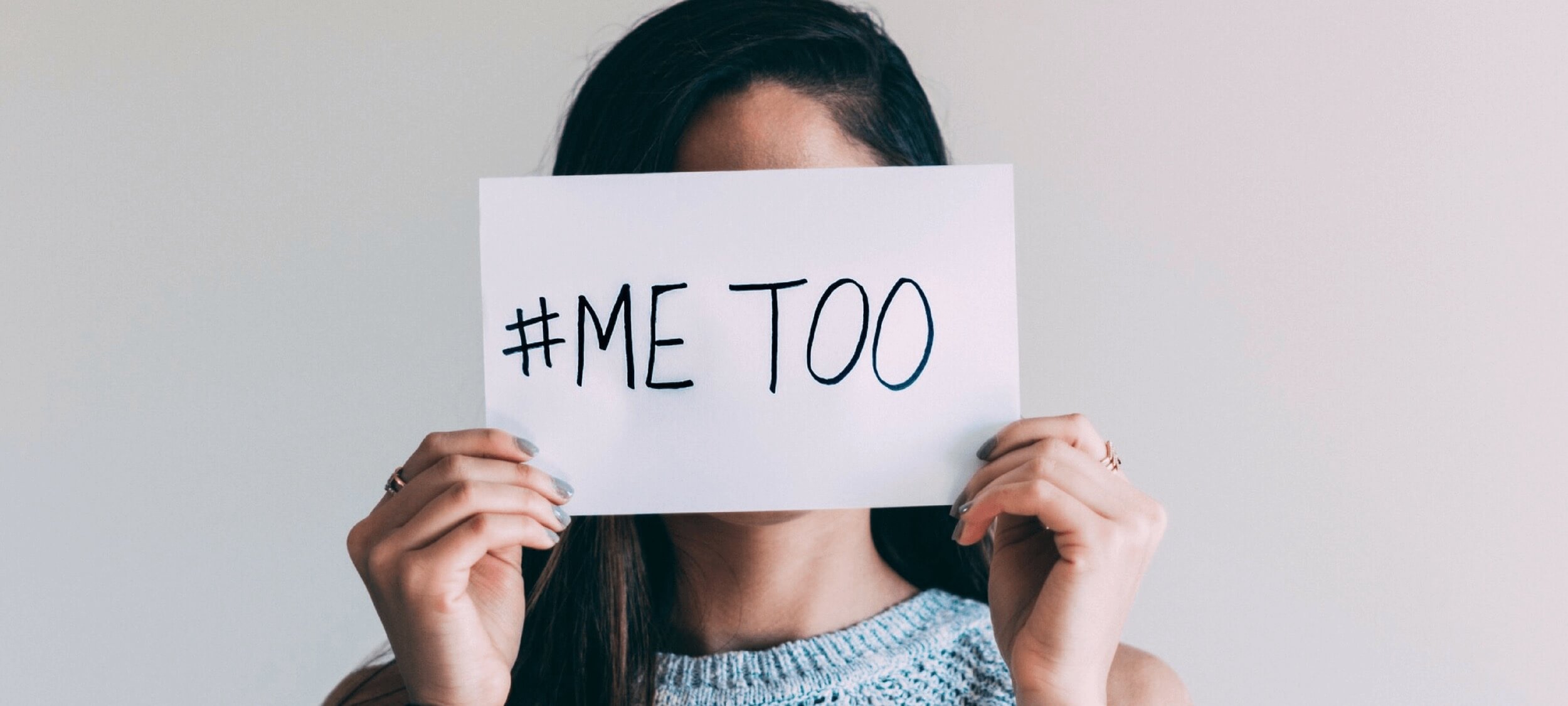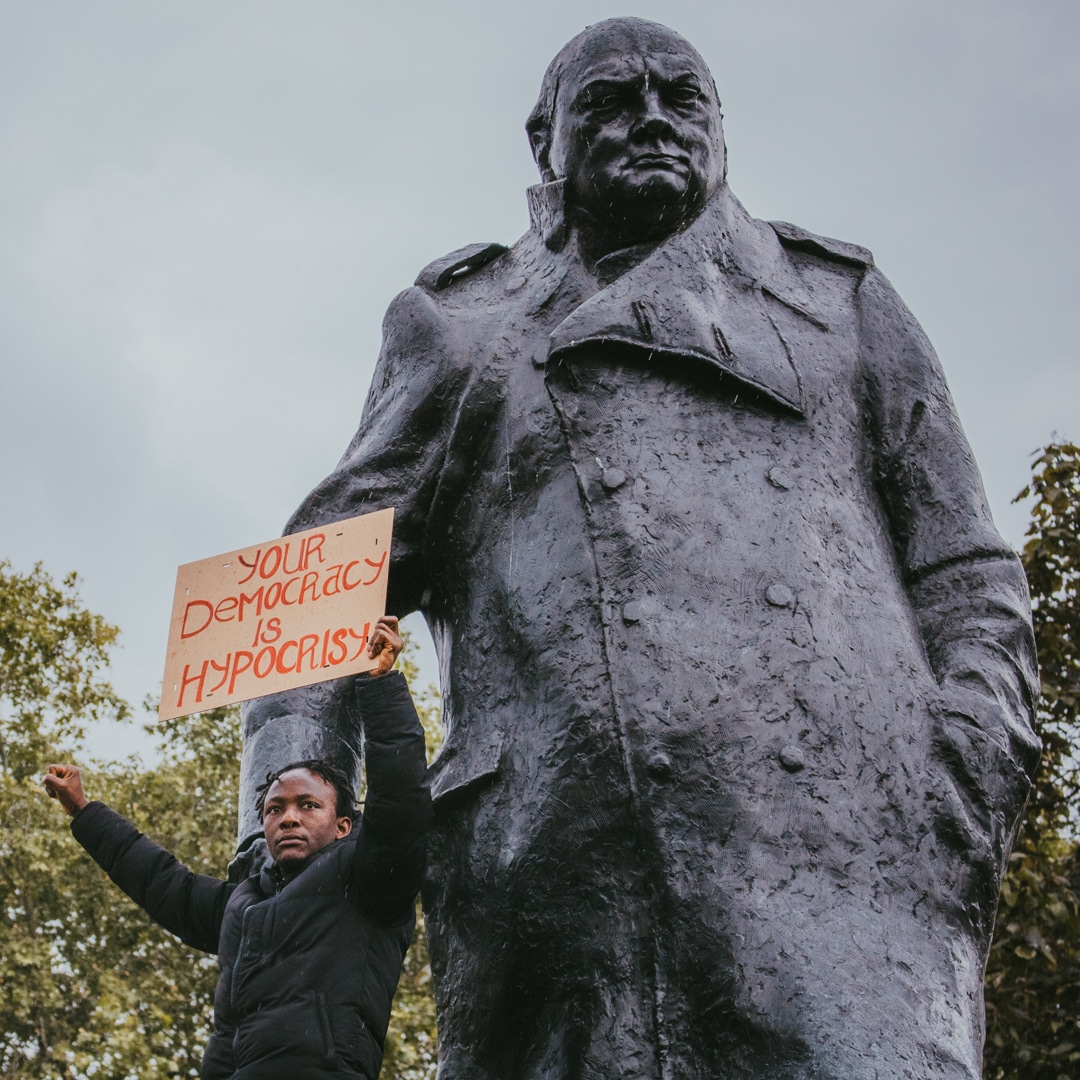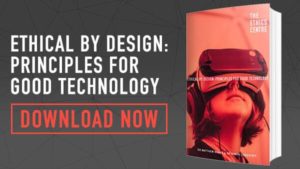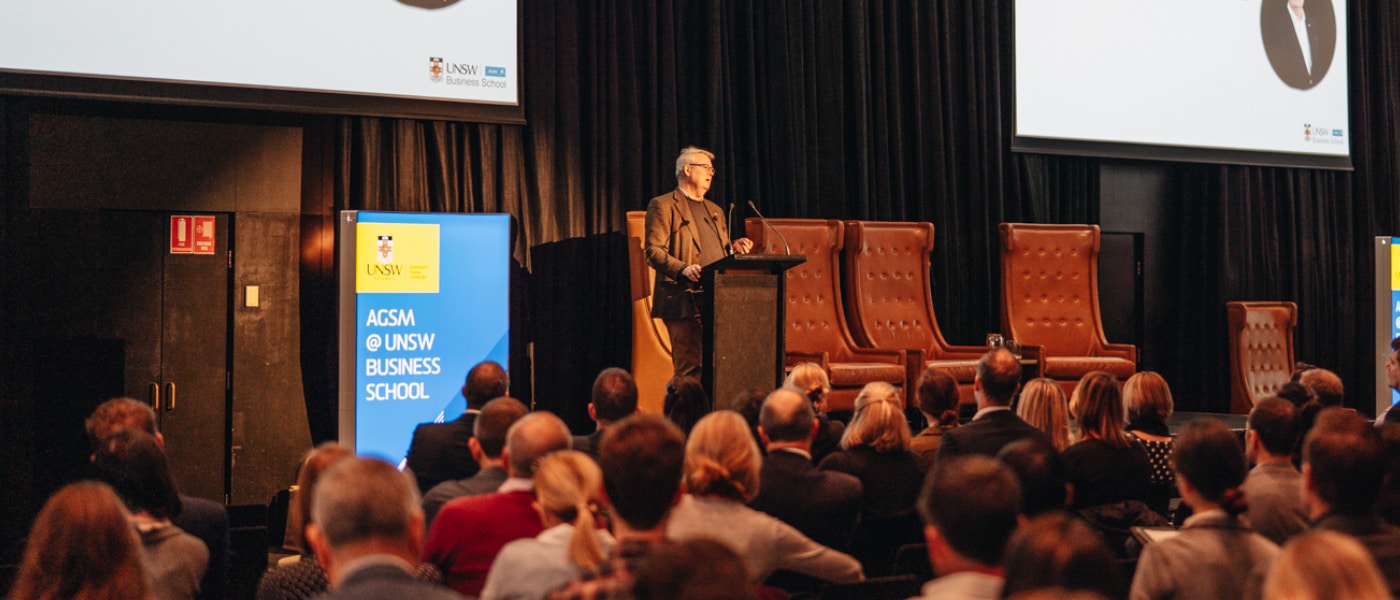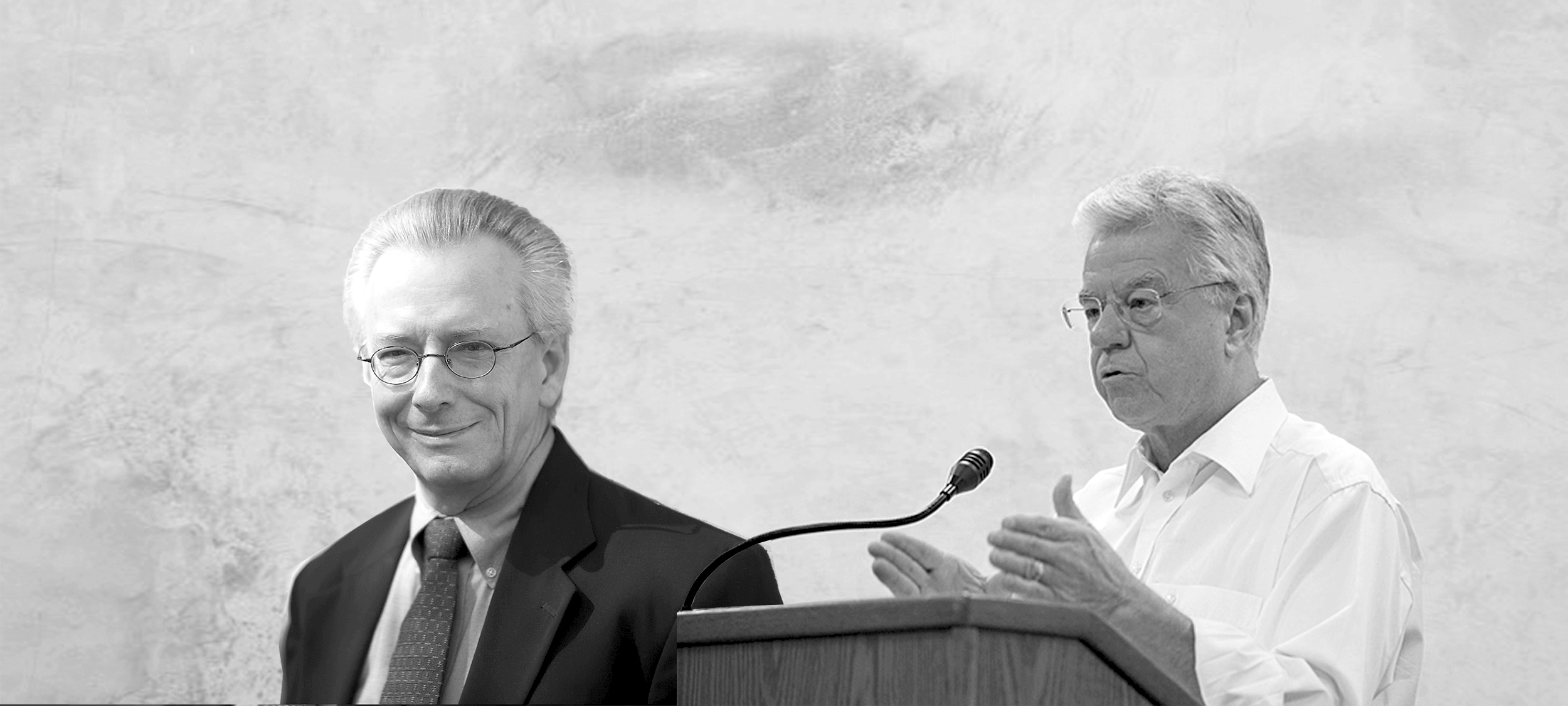Ethics Explainer: Ethical judgement and moral intuition

Ethics Explainer: Ethical judgement and moral intuition
ExplainerRelationships
BY Matthew Beard The Ethics Centre 28 JUL 2020
Have you ever seen a situation that seems flatly wrong, but when asked to explain why you find yourself struggling for words? Perhaps you’ve got a strong sense that something is wrong – an immediate, powerful instinct about what should or shouldn’t happen. In ethics, we refer to these as moral intuitions.
Moral intuitions go by a number of different names. Some of us talk about ‘gut instinct’ or whether something passes the ‘sniff test’. Both terms suggest that there is some strong, basic belief about right and wrong that we can use to ground our judgements.
The problem is, despite the speed and strength of these intuitions, they are only as valuable as their source. Our intuitions can come from a range of sources: personal and family history, unconscious biases, custom, culture or a strong, stable and well-founded sense of what’s right.
Opinions differ on what we should do with our moral intuitions. Should we follow them, trusting them as a different kind of knowledge that draws on subconscious, non-rational and emotional cues? Should we ignore them, seeing them as irrational, unjustifiable claims about what’s right or wrong? Or should we treat them as one piece of evidence among many when we’re making a decision?
Resolving these questions requires us to work out what kind of intuitions we’re having. Some of our judgements about ethics can be based in a sense of disgust or ideas about what’s taboo (for instance, thinking about lab-grown meat), they can be the product of psychological biases like availability bias or halo effect, or social prejudices like racism, sexism, ableism or class-based moralities.
However, other intuitions may be based in our emotional response to a situation. Many of our emotions can reflect and inform our rational judgements. If something makes us angry, that’s information worthy of considering. If something makes us proud, that’s data we can use to help shape an opinion. Standing alone, ‘this made me feel sick’ isn’t sufficient information to form a moral judgement. But, the fact that learning about or witnessing something made you feel physically ill also isn’t something you should ignore lightly.
From the Nazis to ISIS, history is littered with groups who have encouraged their members to dismiss the evidence of their minds and bodies – such as feeling of disgust or shame at committing acts of murder – in order to serve some ‘higher’ goal. Dismissing the morally informative role of emotions can be used as a tool to pave the way to atrocity.
Whilst emotions alone should not be taken as sufficient for forming judgement, some believe there are kinds of intuitions that can, in and of themselves, reveal something ethically important to us.
For instance, we might have an intuition that all people are to be treated fairly, that it is wrong to intentionally harm an innocent person for no reason or that all people are to be treated with dignity. These are beliefs that moral intuitionists claim to be self-evident. These ideas don’t need to be justified or proven true, they just are. A moral intuitionist would argue that any person who disputes them is simply wrong.
Of course, not everyone accepts that there are self-evident principles on which to build an ethical system. These people, who are often associated with a philosophical school of thought known as rationalism, prioritise analytic reason, and hold that intuitions should be ignored. The only basis on which we should make ethical judgements is a rationally constructed argument. If, for instance, we think all people should be treated equally, we should make an argument to that effect. If we can’t, we don’t have good reasons to hold that belief.
What intuitionists and rationalists agree on is that making an ethical judgement is distinct from having a moral intuition. Our strong, immediate judgements about a situation are rarely – if ever – enough for us to make a decent appraisal of a situation.
However, the rationalist goal of eliminating emotion and intuition from the realm of ethical judgement is also false. Critical feminist and race scholars have highlighted the way that rationalists tend to paint a male, Western approach to thinking as a ‘universal’ rationality. In doing so, they tend to understate and invalidate other knowledge traditions and sources of moral judgement, including emotion.
For example, psychologist Laurence Kohlberg used a rationalist model of ethical decision-making to develop a stage theory of moral development. He thought rational, theoretical decision-making was more mature than decisions based on emotion, care and relationships. As a result, he concluded that boys tended to be more morally mature than their same-age female peers.
It took his student, feminist scholar Carol Gilligan, to point out that not only was Kohlberg’s assumption about rationality unjustified (it ignored, for example, the work of scholars like David Hume), it painted the difference between male and female moral reasoning as a deficiency in women rather than as a simple difference.
Perhaps we should take guidance from both rationalists and intuitionists. From the rationalist we can learn the understanding that our first judgement of a situation should not be our last. However, intuitionists remind us not to dismiss our initial judgements out of hand, but to interrogate and understand them. That way, next time, our intuitions will be a little closer to the mark.
You can contact The Ethics Centre about any of the issues discussed in this article. We offer free counselling for individuals via Ethi-call; professional fee-for-service consulting, leadership and development services; and as a non-profit charity we rely heavily on donations to continue our work, which can be made via our website. Thank you.
Ethics in your inbox.
Get the latest inspiration, intelligence, events & more.
By signing up you agree to our privacy policy
You might be interested in…
Opinion + Analysis
Relationships
What we owe our friends
Opinion + Analysis
Relationships, Society + Culture
Meet David Blunt, our new Fellow exploring the role ethics can play in politics
WATCH
Relationships
Purpose, values, principles: An ethics framework
Opinion + Analysis
Relationships, Society + Culture
How can you love someone you don’t know? ‘Swarm’ and the price of obsession
BY Matthew Beard
Matt is a moral philosopher with a background in applied and military ethics. In 2016, Matt won the Australasian Association of Philosophy prize for media engagement. Formerly a fellow at The Ethics Centre, Matt is currently host on ABC’s Short & Curly podcast and the Vincent Fairfax Fellowship Program Director.
BY The Ethics Centre
The Ethics Centre is a not-for-profit organisation developing innovative programs, services and experiences, designed to bring ethics to the centre of professional and personal life.
Punching up: Who does it serve?

Punching up: Who does it serve?
Opinion + AnalysisPolitics + Human RightsRelationshipsSociety + Culture
BY Simon Longstaff 24 JUL 2020
I recently watched Hannah Gadsby’s comedic tour-de-force, Douglas. It is sharp and provocative – but wonderfully insightful. In the course of her performance, Hannah explains that she applies to her humour the principle of ‘punching up’.
It is an approach employed by comics when deciding who is a legitimate target for ridicule and satire. The idea is pretty simple, it’s fine to take aim at someone who is more powerful than you – but never those who are relatively weaker. The operating assumption is that the powerful are unlikely to be harmed by a bit of fun at their expense, while the weaker have suffered enough without having to cope with a comic’s insults.
The idea of ‘punching up’ seems to have taken on a life beyond the world of comedy. More generally, those who stand higher up the ladder of power and privilege are now expected to accept, without retaliation or reproach, whatever comes their way from those located on lower rungs of the ladder. Sitting at the top are cis-gendered, white men, like me. If we complain, then this is just evidence of our ‘thin skin’ and an inability to take a serving of what we have been dishing out for millennia.
It is easy to identify who is currently at the top of the ladder. However, beyond that point, working out the relativities of who is ‘up’ or ‘down’ becomes increasingly difficult. After all, there is no natural hierarchy of power, privilege, disadvantage or subjugation.
Instead, positions change as the wheel of history turns – with some groups ascending at one point only to see their position reversed at another. For example, consider the case of the Aztecs. Prior to the arrival of the Spaniards, they commanded an empire built on the conquest, enslavement and ritual sacrifice of those who fell under their sway. Yet, today, their descendants are a dispossessed people with an extraordinarily resilient culture that has survived centuries of attempted suppression by their colonisers.
So, who gets to ‘punch up’ (or be ‘punched’) is relative to time and culture. The role of being a priestess can be at the apex of power and influence in one setting but marginalised in another. A banker can be reviled as a ‘usurer’ in the past only to be celebrated by future generations.
However, that’s not where the relativities end. Conduct that is condoned in one case will be condemned in another – even though the things done are identical. For example, what is praised as being ‘forthright’ in a man has often been criticised as ‘aggression’ in a woman. Asymmetry of judgement also applies in the context of ‘punching up’. Behaviour that is justifiably condemned in a powerful person is often excused or ignored if practiced by a relatively powerless individual.
So, what are we to make of this? First, let’s acknowledge that there are some individuals and groups who have been systematically marginalised, over such a long period of time, as to deserve the opportunity to ‘even things up’ in any contest. Only those blinded by prejudice would deny this to be so.
However, this is not to say that relative historical disadvantage should excuse anything done – just as long as it is directed at the relatively powerful. A person fighting a stronger adversary may pick up a stick to ‘even the odds’ – but it would be wrong for them to attack an unarmed person with a firearm. To do so would involve a disproportionate use of force.
Likewise, I think it wrong to belittle or vilify a person (any person) in a deliberate attempt to wound them with words. That is not comedy – it is abuse. Comics make a person uncomfortable as a way of drawing attention to an issue of underlying importance – but their aim is not (and should not be) to harm. To do otherwise is to adopt the stance of the bully … which is wrong whatever one’s relative position in life.
I realise that it is easy to recommend restraint when one belongs to a powerful or privileged group – as I do. However, I am not a supporter of relativism in ethics (or elsewhere). To wound another – willfully or recklessly – is wrong.
The fact that it occurs as a result of anger or frustration might explain such behaviour – but it does not justify it. I know that this will be a view unpopular with those who have a taste for revenge – who believe in the proverbial ‘eye for an eye, tooth for a tooth’. However, I prefer the position of the Reverend Dr Martin Luther King Jr. who wrote that:
“Violence as a way of achieving racial justice is both impractical and immoral. It is impractical because it is a descending spiral ending in destruction for all. The old law of an eye for an eye leaves everybody blind. It is immoral because it seeks to humiliate the opponent rather than win his understanding; it seeks to annihilate rather than to convert.”
Yes, great wrongs need to be made right – but justice cannot be produced by injustice.
So, does this load the greater obligation onto the shoulders of those who have traditionally been on the wrong end of the stick? On the contrary, those of us who enjoy the greatest power and privilege should accept the greatest obligation to act ethically … not least because we have the capacity to do so.
We should begin by recognising and redressing the disparities of our day; we should acknowledge that we did not earn our privileged position – but were simply lucky enough to be born blessed with opportunity. It is not out of guilt, but with a sense of justice, that we should seek to redress historical and contemporary sources of inequity.
Perhaps then the urge to punch will eventually be assuaged, and something better – that could never have grown in the soil of anger and resentment – can emerge to see the light of day.
Ethics in your inbox.
Get the latest inspiration, intelligence, events & more.
By signing up you agree to our privacy policy
You might be interested in…
Opinion + Analysis
Relationships, Society + Culture
What Harry Potter teaches you about ethics
Opinion + Analysis
Business + Leadership, Politics + Human Rights
We are on the cusp of a brilliant future, only if we choose to embrace it
Opinion + Analysis
Politics + Human Rights, Relationships
What do we want from consent education?
Opinion + Analysis
Health + Wellbeing, Relationships
Anthem outrage reveals Australia’s spiritual shortcomings
BY Simon Longstaff
Simon Longstaff began his working life on Groote Eylandt in the Northern Territory of Australia. He is proud of his kinship ties to the Anindilyakwa people. After a period studying law in Sydney and teaching in Tasmania, he pursued postgraduate studies as a Member of Magdalene College, Cambridge. In 1991, Simon commenced his work as the first Executive Director of The Ethics Centre. In 2013, he was made an officer of the Order of Australia (AO) for “distinguished service to the community through the promotion of ethical standards in governance and business, to improving corporate responsibility, and to philosophy.” Simon is an Adjunct Professor of the Australian Graduate School of Management at UNSW, a Fellow of CPA Australia, the Royal Society of NSW and the Australian Risk Policy Institute.
The dilemma of ethical consumption: how much are your ethics worth to you?

The dilemma of ethical consumption: how much are your ethics worth to you?
Opinion + AnalysisClimate + EnvironmentHealth + WellbeingRelationships
BY Matthew Beard The Ethics Centre 21 JUL 2020
Everyone, rich and poor alike, should be able to buy the cheapest product with a clean conscience.
This article was written for, and first published by The Guardian.
In the lead-up to a recent buck’s party, the group chat turned to the age-old question: will there be strippers? After some back and forth (for the record, I was opposed), the groom-to-be stepped in with the veto. “No strippers!” he declared.
His reasoning demonstrated a remarkable level of self-knowledge. He explained that he was planning on the weekend being filled with inhibition-reducing substances and didn’t trust his addled self to make smart decisions.
In doing so, he gave voice to a basic moral principle: better to avoid temptation than to overcome it. From Mufasa to Gandalf – and the Lord’s Prayer – we’re told that while it’s good to be able to resist vice when it calls to us, there’s wisdom in arranging our lives in a way that minimises our exposure to vice altogether.
Unfortunately, that advice is nearly impossible to follow when it comes to participating in the market. Increasingly our decisions around what we buy come with a trade-off: the more sustainable, ethical, fair trade option or the cheaper, potentially dodgier one.
Take an easy example: eggs. Do you want to buy them from the farms that give the chooks the best quality of life (comparably speaking)? Free range, organic and more than twice the price of the quick-and-dirty caged eggs stashed at the bottom of the shelves. For many of us, this is a fairly straightforward choice – the price to put our money where our morals are is relatively low, though even here, the lower your budget, the harder the ethical choice becomes. What happens when we increase the costs?
If we stop thinking with our stomachs, the problems get even larger. I recently informed my financial planner that I wanted to move my superannuation to an ethical investment fund. He did his job and showed me the comparison. If fees and returns for each fund performed as they had been, in 30 years’ time my superannuation would be $300,000 worse off investing in an ethical fund. Lead us not into temptation indeed.
There are a few perversities here. The most galling to me is that pitting money against morality is a regressive dilemma. The people who can most afford to pay their ethical way are the uber rich; those battling against the poverty line don’t have the option but to become complicit in animal wellbeing issues and clothing made in questionable conditions. They certainly can’t justify moving to a higher-fee fund just because it doesn’t invest in coal or tobacco.
There seems to be something uniquely cruel about creating a system that determines ethical seriousness by purchasing behaviour, thereby stigmatising the poor and lightening the load on the wealthy.
This only becomes more egregious when you consider the various ways in which wealth is accumulated under capitalism – often on the backs of the same workers who can’t afford not to be complicit in the ethical missteps that often end up lining the pockets of the very same elites who can then afford a clean conscience.
However, the choice remains difficult even for those who ostensibly can afford to take the financial hit for their ethics. It’s easy to compare the immediate, measurable and tangible cost difference of two products. Making a judgement regarding the vague, unquantifiable moral value of not investing in unethical practices or investing in exemplary ones is ambiguous. There’s no obvious benefit and thanks to the anonymity of the global market, we usually don’t see the harms inherent in the products we’re being offered. That’s a recipe for rationalising the choice that’s better for us and ours, no matter what the costs are to anonymous people, animals and ecosystems.
There appears to be little out for those wanting to be ethical consumers on a budget. Compromises and trade-offs will need to be made. You’ll likely need to benefit from practices that don’t align with what you think is right. However, the lie at the heart of the ethical consumption movement is to tell you this is your fault. It’s not. It’s the fault of a much larger system offering you choices that, in many cases, you simply shouldn’t be permitted to make.
I don’t want to be given the choice between forfeiting hundreds of thousands of dollars and compromising on my values. I don’t want to be offered the opportunity to buy clothes that are cheaper for me because disempowered workers paid the price in underpayment and subjugation. It’s too easy to justify the worse option. It’s too easy to be tempted.
You can contact The Ethics Centre about any of the issues discussed in this article. We offer free counselling for individuals via Ethi-call; professional fee-for-service consulting, leadership and development services; and as a non-profit charity we rely heavily on donations to continue our work, which can be made via our website. Thank you.
Ethics in your inbox.
Get the latest inspiration, intelligence, events & more.
By signing up you agree to our privacy policy
You might be interested in…
Opinion + Analysis
Relationships
Metaphysical myth busting: The cowardice of ‘post-truth’
Explainer
Politics + Human Rights, Relationships
Ethics Explainer: Social philosophy
Opinion + Analysis
Business + Leadership, Politics + Human Rights, Relationships
It’s time to increase racial literacy within our organisations
Opinion + Analysis
Health + Wellbeing
4 questions for an ethicist
BY Matthew Beard
Matt is a moral philosopher with a background in applied and military ethics. In 2016, Matt won the Australasian Association of Philosophy prize for media engagement. Formerly a fellow at The Ethics Centre, Matt is currently host on ABC’s Short & Curly podcast and the Vincent Fairfax Fellowship Program Director.
BY The Ethics Centre
The Ethics Centre is a not-for-profit organisation developing innovative programs, services and experiences, designed to bring ethics to the centre of professional and personal life.
If we’re going to build a better world, we need a better kind of ethics

If we’re going to build a better world, we need a better kind of ethics
Opinion + AnalysisRelationshipsSociety + Culture
BY Matthew Beard The Ethics Centre 17 JUN 2020
At times of global crisis, it’s very tempting for moral philosophers to get an over-inflated sense of self-importance. Those who have dedicated their life to reasoning through matters of complexity – justice, rights, liberty and the rest – suddenly feel uniquely placed to make sense of what’s happening.
When philosophers intervene effectively in public debate, it’s often lauded as a breath of fresh air. If I had a dollar for every time someone had suggested I teach ethics to politicians, I wouldn’t need to teach anyone ever again.
Last week, Jared Field, a University of Melbourne mathematician and Gomeroi man argued in The Guardian that the recent destruction of the Juukan Gorge cave by Rio Tinto revealed the need for students of STEM to be trained in ethical reasoning.
Having myself argued for the need to include ethics within STEM, I desperately want to agree with Field. But in order for ethicists to provide the kind of education he hopes for, one in which scientists ask “am I being a good ancestor?”, the field of ethics first needs to reckon with its own history. Moral philosophers, as it turns out, don’t have the best ancestors.
Ethics, a branch of philosophy, is an intellectual tradition and an academic discipline that, like any other, has a history of sexism, racism and complicity with oppressive systems and regimes.
In the wake of the protests and riots following the killing of George Floyd, the solidarity that has been sparked across the globe, and the more targeted protests regarding Aboriginal deaths in custody here in Australia, I’ve started wondering about the legacy of the discipline. To follow Field’s line of questioning – what do ethicists have to do to ensure they’re being good ancestors?
I’m beginning to worry that some of the most basic ways we think and ‘reason’ (more on that word soon) about ethics, has a role in legitimising the very violence that ethicists and moral philosophers then seek to condemn.
This isn’t true of all philosophy – but it is typical of an approach that holds a lot of traction today because of its association with some of the most widely-known (and more importantly, widely taught) philosophers in history. It’s a notion of philosophy that sees it as an entirely rational exercise of developing and applying theories, ideas and frameworks in a vacuum.
This vacuum is meant to be liberating. It’s designed to be transcendental – elevating our ideas above what things appear to be so that we can articulate things as they really are, or as they should be. It’s from this vacuum that we get thought experiments and concepts like the trolley dilemma, the state of nature and the veil of ignorance. It’s also where we get a whole lot of applied ethical frameworks, like just war theory in military ethics, quality-adjusted life yields (QALY’s) in medical ethics and ‘use of force’ doctrines in policing ethics.
These theoretical frameworks provide us with a universal sense of what, for example, the ‘just’ use of police force looks like. To be considered ‘just’ (in Australia, at least) the use of force needs to be necessary, proportionate, reasonable, in pursuit of a legitimate goal and must aim to de-escalate or minimise harm.
When you run through these criteria as a list, it gives the sense of something comprehensive – that we could apply this framework to all cases and make some kind of reasonable judgement about whether the use of force is ethical or not. These approaches provide consistency, impartiality and at their best, capture something essential about the moral considerations at the heart of what’s at stake.
However, they also risk pulling the wool over our eyes, because they ask us to assume that when two people walk into this neat thought experiment, they too are transcendent. Their historical baggage, political status, social standing and whatever else defines their lived experience isn’t something to be wrestled with. Instead, the particularities of their lives and histories are something to be transcended.
What this means in the context of policing is that the very question of whether the police – as they have come to operate and function in a society – are legitimate or not is outside the scope of questioning. It means it falls to us to determine whether someone’s previous criminal status – itself likely intertwined with systemic injustices, social disadvantage and oppression – justifies a greater level of force, you know, because it’s proportional to the ‘greater threat’. The question ends, by accident or design, before we ask what role the colour of a person’s skin might have played in determining that use of force.
Philosopher and health researcher Bryan Mukandi describes this as a tendency to treat ethical decisions as an “atemporal phenomenon,” removing ethical decisions from the history that must inform them. It’s a phenomenon we have seen play out in the COVID-19 pandemic. Two patients arrive in need of a ventilator – one has promising health outcomes, the other doesn’t. The ventilator goes, according to many medical ethicists, to the one who promises better outcomes.
However, Mukandi points out that this, by design, overlooks the potential that the reason one person faces worse outcomes is because of a series of injustices they have experienced over the course of their life. Injustices that are not merely ignored at the moment of crisis, but which are relitigated against the person by denying them the same healthcare they have been denied again and again.
The false belief that ethics is an atemporal phenomenon has also been at work in the backlash against the Black Lives Matter protests around the globe. Conditioned to compare instances of violence only in the present, critics look at two instances of violence and treat them as equivalent. They have, by design, removed the most relevant factor – a history of deliberate, systemic violence and racism inflicted by one party on the other.
In so doing, they simultaneously rewrite the reality of the situation and claim some intellectual high ground, because they are the ones playing by the rules of rational thinking and reason. They are all too quick to spot an apparent contradiction in the logic of the other side after they’ve framed the terms of the debate and defined what matters and what doesn’t in their own way.
This is not a new tactic. It’s perhaps the earliest strategy in the colonial tool kit. Perhaps the best-known thought experiment in political philosophy concerns the ‘state of nature’, where we consider what life would be like if human society existed with no laws, no government, no organised systems of co-operation whatsoever.
The state of nature is meant to reveal how and why humans might wish to enter into society at all. Conveniently, most accounts of the state of nature – written by white men from European and British backgrounds – revealed the natural society to emerge from a state of nature to be a distinctly Eurocentric one.
The British philosopher John Locke developed his influential account of property ownership, based on European agricultural practices and the idea that land had to be tilled and settled to be owned. This way of thinking played a role in allowing colonists to see lands like Australia as unowned – as terra nullius. Philosopher Olly Thorn describes this as the practice of interpreting difference as absence. Different approaches to property, government and society were interpreted as lesser, or non-existent.
Far from discovering some universal truths by transcending the world, the philosophers I idolised as an undergrad (and to an extent, still do) simply gave their own world view the veneer of universality and in doing so, became available to launder white supremacy, colonialism and genocide.
They weren’t alone in this. Colonialism wasn’t invented by the British Empire. Nor was racism discovered during the Enlightenment. Other cultures and times have been guilty of similar crimes. However, what is distinct is the tendency to look for answers in the European thinkers who gave intellectual cover and license to the very evils we are now trying to address.
Jamaican political philosopher Charles Mills, wrote famously that at the end of the day, “a lot of philosophy is just white guys jerking off”. Often it fails to address real issues, and when it does, “the emphases are in the wrong place; or crucial facts are omitted, making the whole discussion pointless.”
If philosophers are to be good ancestors, we need to be honest about the legacy we’ve inherited from our own. We need to reckon with our unspoken tendency to accept an approach that is comfortable with erasing history. That requires a conscious choice to reconsider methods that focus on what’s happening now and what might happen in the future at the expense of the past. It means ensuring that we no longer overlook, or forgive, the racism, sexism and other moral failings of almost all the giants of our field.
Protestors and rioters have been criticised for destroying private property, invoking the very same intellectual concepts that were used to justify stealing Indigenous lands in the first place. They have been told to prosecute their arguments in a ‘marketplace of ideas’, invoking notions of liberty from John Stuart Mill, a man who believed only white people were truly capable of liberty. Failing to address the history of these ideas has seen us relitigating them in the same old ways, denying opportunities to refine, repurpose or replace these ideas with better ones.
Philosopher Kate Manne recently tweeted that “It is really striking at this moment how little talk there’s been of reforming philosophy departments. Our whiteness is overwhelming and deeply problematic.” I think Jared Field is right to think that a better curriculum might give us some hope looking forward.
But if we are going to start addressing social change in the curriculum, we first need to address the people writing it, and the thinkers in it.
Image credit: WikiCommons
You can contact The Ethics Centre about any of the issues discussed in this article. We offer free counselling for individuals via Ethi-call; professional fee-for-service consulting, leadership and development services; and as a non-profit charity we rely heavily on donations to continue our work, which can be made via our website. Thank you.
Ethics in your inbox.
Get the latest inspiration, intelligence, events & more.
By signing up you agree to our privacy policy
You might be interested in…
Opinion + Analysis
Business + Leadership, Climate + Environment, Relationships
ESG is not just about ticking boxes, it’s about earning the public’s trust
Opinion + Analysis
Health + Wellbeing, Relationships
Living well or comfortably waiting to die?
Opinion + Analysis
Relationships
Metaphysical myth busting: The cowardice of ‘post-truth’
Opinion + Analysis
Politics + Human Rights, Relationships
Calling out for justice
BY Matthew Beard
Matt is a moral philosopher with a background in applied and military ethics. In 2016, Matt won the Australasian Association of Philosophy prize for media engagement. Formerly a fellow at The Ethics Centre, Matt is currently host on ABC’s Short & Curly podcast and the Vincent Fairfax Fellowship Program Director.
BY The Ethics Centre
The Ethics Centre is a not-for-profit organisation developing innovative programs, services and experiences, designed to bring ethics to the centre of professional and personal life.
In the face of such generosity, how can racism still exist?

In the face of such generosity, how can racism still exist?
Opinion + AnalysisPolitics + Human RightsRelationshipsSociety + Culture
BY Simon Longstaff The Ethics Centre 12 JUN 2020
Is there any polite or moderate way to condemn racism? I think not. Nor should there be. As the world has witnessed, on countless occasions, racism kills. It does so for the worst of all possible reasons – by denying the equal humanity of some people simply because of the colour of their skin.
The evil caused by racism is not ‘theoretical’. We do not need to speculate about the horrors that it has unleashed. We have only to listen to the evidence of the enslaved, the dispossessed and the murdered to know what follows when one group of people is thought to be ‘less fully human’ than another.
Some people are upset by the words ‘Black Lives Matter’. They assert an alternative proposition that, ‘All Lives Matter’. Well, of course they do. But that has never been denied by the BLM movement. BLM does not claim that only black lives matter. They do not say that black lives matter more than any other.
They simply state that black lives also matter – in a way that racism denies. And they are right. They might also ask, ‘where were the people chanting ‘All Lives Matter’ when the ‘original sin’ of racism was being visited on the world?’. Why has the ‘All Lives Matter’ brigade only found its voice now that the spotlight has been turned on the oppressors by the oppressed?
I come from a privileged background. So, I can barely imagine what it must be like to be on the wrong end of the racist scourge. I can only guess at my reaction – probably a burning rage at the sheer injustice of my treatment. Like the Rev’d. Dr. Martin Luther King Jr – I would demand to be judged for the quality of my character rather than the colour of my skin. Denied that right, I would let loose my rage on an unjust world and those who represent the system that denied me the most basic form of dignity.
So, it eclipses all understanding to find that, in my experience, the vast majority of Indigenous Australians who have experienced racism are, in fact, amongst the most generous and accepting of people. Yes, there are angry firebrands. However, rather than replicate the wrongs they have suffered or become like those who have denied their humanity, most of those affected choose to repudiate racism by accepting others for who they are and not how they seem.
I speak of this from direct experience. A few days after my seventeenth birthday, I arrived on Groote Eylandt – the home of the Anindilyakwa people of East Arnhem Land and the Gulf of Carpentaria. This was the mid-1970s and the racism directed towards the local mob was common, open and shameless. I doubt that those involved would consider themselves as deliberately being racist. If anything, their racism was almost ‘casual’ in character – a product of ignorance, prejudice and ingrained habits of mind.
It’s hard to explain exactly how and why my experience was so different – perhaps it was my young age or a lucky accident … I really do not know. Whatever the reasons, a few of the Aboriginal men took me under their wing. Friendships developed and eventually I was given a skin name and inducted into a network of kinship ties that I value to this day. The point is that if you were to meet me ‘in the flesh’ you would simply see a middle-aged, white male. As far as I know, I have no genetic ties to the people of Groote. Yet, their acceptance of me has been complete and unconditional.
I have often questioned my experience – wondering if I might have invented a narrative to match an idealized version of myself. However, improbable as it might seem, the connections are real. I will never forget spending an evening with two members of the Amagula Clan (a brother and sister) who explained their kinship connection to me (I carry a Lalara name). Eventually, they simply placed their hands over my heart – to tell me that the colour of my skin, my ‘outward form’, did not matter. That this is not what they saw when they looked at me … but something altogether different. Both are dead – dying far earlier than would have been the case if Australia had been settled on more just terms.
My experience is not unique. Indeed, I believe that our First Nations people are willing to embrace anyone who cares to be open to their doing so. All that is asked is that there be a recognition of simple truths about our relationship to each other and to all that belongs to and is part of the country of which we form equal parts.
In the face of such generosity of spirit – how can we possibly allow racism to persist?
IMAGE CREDIT: The image displayed in this article is a painting by Alfred Lalara (deceased), a talented Groote Eylandt artist. The title is Angurugu River.
You can contact The Ethics Centre about any of the issues discussed in this article. We offer free counselling for individuals via Ethi-call; professional fee-for-service consulting, leadership and development services; and as a non-profit charity we rely heavily on donations to continue our work, which can be made via our website. Thank you.
Ethics in your inbox.
Get the latest inspiration, intelligence, events & more.
By signing up you agree to our privacy policy
You might be interested in…
Opinion + Analysis
Society + Culture, Relationships
There is more than one kind of safe space
READ
Society + Culture
6 dangerous ideas from FODI 2024
Opinion + Analysis
Business + Leadership, Health + Wellbeing, Relationships
Moving on from the pandemic means letting go
Opinion + Analysis
Politics + Human Rights, Relationships
To Russia, without love: Are sanctions ethical?
BY Simon Longstaff
Simon Longstaff began his working life on Groote Eylandt in the Northern Territory of Australia. He is proud of his kinship ties to the Anindilyakwa people. After a period studying law in Sydney and teaching in Tasmania, he pursued postgraduate studies as a Member of Magdalene College, Cambridge. In 1991, Simon commenced his work as the first Executive Director of The Ethics Centre. In 2013, he was made an officer of the Order of Australia (AO) for “distinguished service to the community through the promotion of ethical standards in governance and business, to improving corporate responsibility, and to philosophy.” Simon is an Adjunct Professor of the Australian Graduate School of Management at UNSW, a Fellow of CPA Australia, the Royal Society of NSW and the Australian Risk Policy Institute.
BY The Ethics Centre
The Ethics Centre is a not-for-profit organisation developing innovative programs, services and experiences, designed to bring ethics to the centre of professional and personal life.
The ethics of tearing down monuments

The ethics of tearing down monuments
Opinion + AnalysisPolitics + Human RightsRelationshipsSociety + Culture
BY Simon Longstaff The Ethics Centre 12 JUN 2020
In the UK and US and other nations around the world, public monuments dedicated to people who have profited from or perpetuated slavery and racism are being torn down by demonstrators and public authorities who sympathise with the justice of their cause.
Statues of Christopher Columbus, Edward Colston, King Leopold II and Confederate Gen. Robert E. Lee are amongst those toppled in protest.
What are we to make of these acts? In particular, who should decide the fate of such monuments – and according to what criteria?
By their very nature, statues are intended to honour those they depict. They elevate both the likeness and the reputation of their subject – conferring a kind of immortality denied to those of us who simply fade away in both form and memory.
So, the decision to raise a statue in a public place is a serious matter. The choice reveals much about the ethical sensibilities of those who commission the work. Such a work is a public declaration that a particular person, through their character and deeds, is deserving of public commemoration.
There are six criteria that should be used to evaluate the public standing of a particular life. These can be applied at the time of commissioning a monument or retrospectively when determining if such a commemoration is justified.
-
They must not be associated with any gateway acts
Are there aspects of the person’s conduct that are so heinous as to rule them out, irrespective of any other achievement that might merit celebration? For example, one would not honour a genocidal mass murderer, even if the rest of their life was marked by the most profoundly positive achievements. There are some deeds that are so wrong as to be beyond rectification.
-
Their achievements must be exceptionally noteworthy
Did they significantly exceed the achievements of others in relevantly similar circumstances? For example, we should note that most statues recognise the achievements of people who were born into conditions of relative privilege. The outstanding achievements of the marginalised and oppressed are, for the most part, barely noticed, let alone celebrated.
-
Their work must have served the public good
Did the person pursue ends that were noble and directed to the public good? For example, was the person driven by greed and a desire for personal enrichment – but just happened to increase the common good along the way?
-
The means by which they achieved their work must be ethical
Were the means employed by the person ethically acceptable? For example, did the person benefit some by denying the intrinsic dignity of others (through enslavement, etc)?
-
They must be the principal driver of the outcomes associated with their deeds
Is the person responsible for the good and evil that flowed from their deeds? Are they a principal driver of change? Or have others taken their ideas and work and used them for good or ill? It is important that we neither praise nor blame people for outcomes that they would never have intended but were the inadvertent product of their work. In those cases, we should not gloss over the truth of what happened. But if they otherwise deserve to be honoured for their achievements, then these should not be deemed ‘tainted’ by the deeds of others.
-
The monument must contribute positively to the public commons
Would the creation of the monument be a positive contribution to the public commons, or is it likely to become a site of unproductive strife and dissension? In considering this, does the statue perform a role beyond celebrating a particular person and their life? Is it emblematic of some deeper truth in history that should be acknowledged and debated? Not every public monument should be a source of joy and consensus. Some play a useful role if they prompt debate and even remorse.
It will be noted that five of the six criteria relate to the life of the individual who is commemorated. Only the sixth criterion looks beyond the person to the wider good of society. However, this is an important consideration given that we are thinking, here, specifically about statues displayed in public places.
The retrospective application of this criteria is precisely what is happening ‘on the streets’ at the moment. The trouble is that the popular response is often more visceral than considered – and this sparks deeper concerns amongst citizens who are ready to embrace change … but only if it is principled and orderly.
Of course, asking frustrated and angry people to be ‘principled and orderly’ in their response to oppression is unlikely to produce a positive response. That’s why I think it important for civic authorities to take responsibility for addressing such questions, and to do so proactively.
This was recently demonstrated by the Borough of Tower Hamlets that removed the statue of slave owner Robert Milligan from its plinth at West India Quay in London’s Docklands. As the Mayor of London, Sadiq Khan, noted: “it’s a sad truth that much of our wealth was derived from the slave trade – but this does not have to be celebrated in our public spaces”.
UPDATE: The statue of slave trader Robert Milligan has now been removed from West India Quay.
It’s a sad truth that much of our wealth was derived from the slave trade – but this does not have to be celebrated in our public spaces. #BlackLivesMatterpic.twitter.com/ca98capgnQ
— Sadiq Khan (@SadiqKhan) June 9, 2020
What does all of this mean for Australia? There will be considerable debate about what statues should be removed. I will leave it to others to apply the criteria outlined above. However, the issue is not just about the statues we take down.
What of those we fail to erect? Who have we failed to honour? For example, have we missed an opportunity to recognise people like Aboriginal warrior Pemulwuy whose resistance to European occupation was every bit as heroic as that of the British Queen Boudica. Two warrior-leaders – the latter celebrated; the other not. The absence is eloquent.
You can contact The Ethics Centre about any of the issues discussed in this article. We offer free counselling for individuals via Ethi-call; professional fee-for-service consulting, leadership and development services; and as a non-profit charity we rely heavily on donations to continue our work, which can be made via our website. Thank you.
Ethics in your inbox.
Get the latest inspiration, intelligence, events & more.
By signing up you agree to our privacy policy
You might be interested in…
Opinion + Analysis
Relationships, Science + Technology
Injecting artificial intelligence with human empathy
Opinion + Analysis
Relationships
In defence of platonic romance
Opinion + Analysis
Relationships, Science + Technology
Making friends with machines
Explainer
Relationships
Ethics Explainer: Stoicism
BY Simon Longstaff
Simon Longstaff began his working life on Groote Eylandt in the Northern Territory of Australia. He is proud of his kinship ties to the Anindilyakwa people. After a period studying law in Sydney and teaching in Tasmania, he pursued postgraduate studies as a Member of Magdalene College, Cambridge. In 1991, Simon commenced his work as the first Executive Director of The Ethics Centre. In 2013, he was made an officer of the Order of Australia (AO) for “distinguished service to the community through the promotion of ethical standards in governance and business, to improving corporate responsibility, and to philosophy.” Simon is an Adjunct Professor of the Australian Graduate School of Management at UNSW, a Fellow of CPA Australia, the Royal Society of NSW and the Australian Risk Policy Institute.
BY The Ethics Centre
The Ethics Centre is a not-for-profit organisation developing innovative programs, services and experiences, designed to bring ethics to the centre of professional and personal life.
Big tech's Trojan Horse to win your trust

Big tech’s Trojan Horse to win your trust
Opinion + AnalysisRelationshipsScience + Technology
BY Matthew Beard 26 MAY 2020
Technology has created bad trust habits in all of us. We shouldn’t be tricked into giving tech our trust, but that’s exactly what happens when everything is about making life easier.
During this lockdown period, I’ve been thinking a lot about the difference between states and habits. Since the outbreak of COVID-19, we’ve all learned what proper hand washing hygiene looks like, how to prevent the risk of spreading disease when we’re in public and what kinds of places to avoid.
For many of us, health used to be a state that we enjoyed without having to develop too many of the habits that help guarantee that health. We’ve had all the benefit without the effort. However, we’re now recognising that if we want the best chance of maintaining our health in a time of uncertainty, we need to be intentional about the habits and behaviours we develop.
I think it’s helpful to think about trust in the same way. For many people and organisations, being trusted is a state: we want to be in a situation where people have high confidence in us. What hasn’t always happened is to think about the intentional practices, behaviours and habits that are likely to secure trust in times of crisis.
This is particularly true for technology and tech companies, who have enjoyed a disproportionately high level of trust for a simple reason: they make our lives easier. The convenience we receive by interacting with technology means we’re likely to continue to engage with them, even when there are very good reasons not to.
Take Uber, for example. Uber is highly reliable and very convenient, which means people are willing to get into cars with complete strangers. Their behaviour indicates they trust the service, even if they say they don’t (surveys find that people find taxi drivers more trustworthy than Uber drivers). This kind of behavioural trust, born of convenience, holds even in situations where people have very good reasons not to ride.
In 2016, in Kalamazoo, Michigan, Jason Dalton – an Uber driver – murdered six people whilst working his nightly Uber driving route. As news broke that there was a suspected murderer picking up rides via Uber, people continued to use the service. One rider who caught a ride with Dalton (thankfully, he wasn’t murdered) actually asked him ‘you’re not the one whose been driving around killing people, are you?’. Despite being aware there was a real threat to life, the convenience of a cheap ride home secured consumer trust in Uber.
Of course, it’s only trust of a certain kind. The trust we confer on convenient technology isn’t genuine trust – where we rationally, consciously believe that our interests align to the tech developers and that they want to take care of us. It’s implied trust; whether we believe the technology will deliver, we act as though it will.
This is the kind of trust we show in large tech platforms like Facebook. A 2018 YouGov survey commissioned by the Huffington Post found 66% of Facebook users have little to no trust in the platforms use of their data. Despite this, those users have given Facebook their data, and continue to do so, which is the kind of trust we provide when there’s something convenient on offer.
We cannot understate the significance that convenience plays as a trust lubricant. Trust expert Rachel Botsman, author of Who Can You Trust?, argues that “Money is the currency of transactions. Trust is the currency of interactions.” We need to add another layer to this: trust is the currency of conscious interactions, but convenience is the currency of the unthinking consumer (and we are all, at times, unthinking consumers).
This generates some real challenges for tech companies. It’s easy to use convenience to secure behavioural trust – to be in the ‘state’ of trust with customers – so that they’ll use your services, hand over data or spend their money, without developing the habits that generate rational, genuine trust. It’s easier to be trusted than to be trustworthy, but it might also be less valuable in the long run.
Moreover, the tendency to reward the convenience-seeking part of ourselves might generate problems with a very long tail. Some problems are not easily solved, nor is there an app to solve wealth inequality, climate change or discrimination. Many of our problems require a willingness to persevere; whilst technology can help, and might help resolve the symptoms of some of these issues, the underlying causes require rethinking our social, political and economic beliefs. Technology alone cannot get us there.
And yet, we continually look to technology as a solution for these woes. The Australian government’s first response to climate change after the 2020 bushfires was a large-scale investment in new climate technologies. Several people have released ‘consent apps’, aimed at preventing rape and false rape claims by having people sign a waiver to confirm they’ve consented to sex. There is no app to solve misogyny; no one technology that will fix our approach to the environment.
The reality is, trading on convenience can make us lazy – not just as individuals, but as a society. It’s bad for us. Moreover, it’s bad for business.
Although people often make decisions based on convenience, they pass judgements based on trust. This means they will often feel duped, exploited or betrayed, feeling ‘tricked’ into signing up to something just because it was convenient at the time.
This makes for a fickle customer and is an unreliable basis on which to build a business. Recognising this, a number of successful organisations are now seeking to build genuine trust. Salesforce CEO Mark Benioff recently stated, “trust has to be the highest value in your company, and if it’s not, something bad is going to happen to you.”
However, for people to trust you, they need to be able to slow down, think, form an ethical judgement. Today, one of the major goals of technology is to be frictionless. Hopefully by now you can see why that’s an unwise goal. If you want people to genuinely trust you, then you can’t give them a seamless experience. You need to create some friction.
Remember, convenience can be a lubricant. It might help you get people through the door more quickly, but it makes them slippery and hard to hold on to.
If you found this article interesting, download our paper, Ethical By Design: Principles for Good Technology for free to further explore ethical tech. Learn the principles you need to consider when designing ethical technology, how to balance the intentions of design and use, and the rules of thumb to prevent ethical missteps. Understand how to break down some of the biggest challenges and explore a new way of thinking for creating purpose-based design.
Ethics in your inbox.
Get the latest inspiration, intelligence, events & more.
By signing up you agree to our privacy policy
You might be interested in…
WATCH
Relationships
What is the difference between ethics, morality and the law?
Opinion + Analysis
Business + Leadership, Relationships
The role of the ethical leader in an accelerating world
Opinion + Analysis
Science + Technology
The cost of curiosity: On the ethics of innovation
Opinion + Analysis
Science + Technology
Why the EU’s ‘Right to an explanation’ is big news for AI and ethics
BY Matthew Beard
Matt is a moral philosopher with a background in applied and military ethics. In 2016, Matt won the Australasian Association of Philosophy prize for media engagement. Formerly a fellow at The Ethics Centre, Matt is currently host on ABC’s Short & Curly podcast and the Vincent Fairfax Fellowship Program Director.
Are we ready for the world to come?

Are we ready for the world to come?
Opinion + AnalysisBusiness + LeadershipRelationshipsScience + Technology
BY Simon Longstaff The Ethics Centre 15 MAY 2020
We are on the cusp of civilisational change driven by powerful new technologies – most notably in the areas of biotech, robotics and expert AI. The days of mass employment are soon to be over.
While there will always be work for some – and that work is likely to be extremely satisfying – there are whole swathes of the current economy where it will make increasingly little sense to employ humans. Those affected range from miners to pathologists: a cross-section of ‘blue collar’ and ‘white collar’ workers, alike in their experience of displacement.
Some people think this is a far too pessimistic view of the future. They point to a long history of technological innovation that has always led to the creation of new and better jobs – albeit after a period of adjustment.
This time, I believe, will be different. In the past, machines only ever improved as a consequence of human innovation. Not so today. Machines are now able to acquire new skills at a rate that is far faster than any human being. They are developing the capacity for self-monitoring, self-repair and self-improvement. As such, they have a latent ability to expand their reach into new niches.
This doesn’t have to be a bad thing. Working twenty-four hours a day, seven days a week in environments that no human being could tolerate, machines may liberate the latent dreams of humanity to be free from drudgery, exploitation and danger.
However, society’s ability to harvest the benefits of these new technologies crucially depends on planning and managing a just and orderly transition. In particular, we need to ensure that the benefits and burdens of innovation are equitably distributed. Otherwise, all of the benefits of technological innovation could be lost to the complaints of those who feel marginalised or abandoned. On that, history offers some chilling lessons for those willing to learn – especially when those displaced include representatives of the middle class.
COVID-19 has given us a taste of what an unjust and disorderly transition could look like. In the earliest days of the ‘lockdown’ – before governments began to put in place stabilising policy settings such as the JobKeeper payment – we all witnessed the burgeoning lines of the unemployed and wondered if we might be next.
As the immediate crisis begins to ease, Australian governments have begun to think about how to get things back to normal. Their rhetoric focuses on a ‘business-led’ return to prosperity in which everyone returns to work and economic growth funds the repayment of debts accumulated during the the pandemic.
Attempting to recreate the past is a missed opportunity at best, and an act of folly at worst. After all, why recreate the settings of the past if a radically different future is just a few years away?
In these circumstances, let’s use the disruption caused by COVID-19 to spur deeper reflection, to reorganise our society for a future very different from the pre-pandemic past. Let’s learn from earlier societies in which meaning and identity were not linked to having a job.
What kind of social, political and economic arrangements will we need to manage in a world where basic goods and services are provided by machines? Is it time to consider introducing a Universal Basic Income (UBI) for all citizens? If so, how would this be paid for?
If taxes cannot be derived from the wages of employees, where will they be found? Should governments tax the means of production? Should they require business to pay for its use of the social and natural capital (the commons) that they consume in generating private profits?
These are just a few of the most obvious questions we need to explore. I do not propose to try to answer them here, but rather, prompt a deeper and wider debate than might otherwise occur.
Old certainties are being replaced with new possibilities. This is to be welcomed. However, I think that we are only contemplating the ‘tip’ of the policy iceberg when it comes to our future. COVID-19 has given us a glimpse of the world to come. Let’s not look away.
The Ethics Centre is a world leader in assessing cultural health and building the leadership capability to make good ethical decisions in complexity. To arrange a confidential conversation contact the team at consulting@ethics.org.au. Visit our consulting page to learn more.
Ethics in your inbox.
Get the latest inspiration, intelligence, events & more.
By signing up you agree to our privacy policy
You might be interested in…
Opinion + Analysis
Business + Leadership
Despite codes of conduct, unethical behaviour happens: why bother?
Opinion + Analysis
Business + Leadership, Relationships
Employee activism is forcing business to adapt quickly
Opinion + Analysis
Health + Wellbeing, Relationships
It’s easy to ignore the people we can’t see
Opinion + Analysis
Health + Wellbeing, Relationships
Why your new year’s resolution needs military ethics
BY Simon Longstaff
Simon Longstaff began his working life on Groote Eylandt in the Northern Territory of Australia. He is proud of his kinship ties to the Anindilyakwa people. After a period studying law in Sydney and teaching in Tasmania, he pursued postgraduate studies as a Member of Magdalene College, Cambridge. In 1991, Simon commenced his work as the first Executive Director of The Ethics Centre. In 2013, he was made an officer of the Order of Australia (AO) for “distinguished service to the community through the promotion of ethical standards in governance and business, to improving corporate responsibility, and to philosophy.” Simon is an Adjunct Professor of the Australian Graduate School of Management at UNSW, a Fellow of CPA Australia, the Royal Society of NSW and the Australian Risk Policy Institute.
BY The Ethics Centre
The Ethics Centre is a not-for-profit organisation developing innovative programs, services and experiences, designed to bring ethics to the centre of professional and personal life.
Philosophically thinking through COVID-19

Philosophically thinking through COVID-19
Opinion + AnalysisHealth + WellbeingRelationshipsScience + Technology
BY Bryan Mukandi The Ethics Centre 9 MAY 2020
In their recent article, ‘Who gets the ventilator in the coronavirus pandemic?’, bioethicists Julian Savulescu and Dominic Wilkinson note that we may soon be faced with a situation in which the demand for medical resources is greater than what is available.
At that point, decisions about who gets what medical resources ought to be just, they argue. The trouble with the article however, is that the two men seem to approach our present crisis as though it were just that, a present tense phenomenon. They view COVID-19 not as a something that has emerged over time as a result of our social configuration and political choices, but as something that appeared out of nowhere, an atemporal phenomenon.
Treating the pandemic as atemporal means that the two scholars only focus on the fact of this individual here and that one over there, suffering in this moment, from the same condition. They fail to ask how how this person came to be prone to the virus, or what resources that person has had at their disposal, let alone the socio-political and historical circumstances by which those resources were acquired. Karla Holloway, Professor of English and Professor of Law, makes the point that stripping away the textual details around our two patients simplifies the decision making process, but the price paid for that efficiency might be justice.
We know that there are systematic discrepancies in medical outcomes for marginalised groups at the best of times.We know that structural inequalities inform discrepancies around the degree to which people can practice social distancing and reduce the risk of infection. We know that those most likely to be most severely affected in the wake of the pandemic are those belonging to already marginalised communities. As public health medicine specialist, Papaarangi Reid, put it in a recent interview:
“We’ve got layers that we should be worried about. We should be worried about people who have difficulty accessing services … people who are stigmatised … While we are very worried about our elderly, we’re also worried about our precariat: those who are homeless; we’re worried about those who are impoverished; those who are the working poor; we’re worried about those who are in institutions, in prisons.”
Every time Reid says that we ought to worry about this group or that, I am confronted by Arendt’s take on just how difficult it is to think in that manner. I’m currently teaching a Clinical Ethics course for second year medical students, one of whose central pillars is Hannah Arendt’s understanding of thought. Standing on the other side of the catastrophe that was the second world war, she warned that thinking is incredibly difficult; so much so it demands that one stop, and it can be paralysing.
Arendt pointed out those algorithmic processes on the basis of which we usually navigate day-to-day life: clichés, conventional wisdom, the norms or ‘facts’ that seem so self-evident, we take them for granted. She argued that those are merely aids, prostheses if you like, which stand in the place of thinking – that labour of conceptually wading through a situation, or painstakingly kneading a problem. The trouble is, in times of emergency, where there is panic and a need for quick action, we are more likely to revert to our algorithms, and so reap the results of our un-interrogated and unresolved lapses and failures.
Australia today is a case in point. “The thing that I’m counting on, more than anything else,” noted Prime Minister Scott Morrison recently, “Is that Australians be Australian.” He went on to reiterate at the same press conference, “So long as Australians keep being Australians, we’ll get through this together.”
I’m almost sympathetic to this position. A looming disaster threatens the status quo, so the head of that status quo attempts to reassure the public of the durability of the prevailing order. What goes unexamined in that reflex, however, is the nature of the order. The prime minister did not stop to think what ‘Australia’ and ‘Australianness’ mean in more ordinary times.
Nor did he stop to consider recent protests by First Nations peoples, environmental activists, refugee and asylum seeker advocates and a raft of groups concerned about those harmed in the course of ‘Australians being Australian’. Instead, with the imperative to act decisively as his alibi, he propagated the assumption that whatever ‘Australia’ means, it ought to be maintained and protected. But what if that is merely the result of a failure to think adequately in this moment?
In his excellent article, calling on the nation to learn from past epidemics, Yuggera/Warangu ophthalmologist Kris Rallah-Baker, writes: ‘This is just the beginning of the crisis and we need to get through this together; Covid-19 has no regard for colour or creed’. In one sense, he seems to arrive at a position that is as atemporal as that of Savulescu and Wilkinson, with a similar stripping away of particularity (colour and creed). It’s an interesting position to come to given the continuity between post-invasion smallpox and COVID-19 that his previous paragraphs illustrate.
Read another way, I wonder if Rallah-Baker is provoking us; challenging us to think. What if this crisis is not the beginning, but the result of a longstanding socioeconomic, political and cultural disposition towards First Nations peoples, marginalised groups more broadly, and the prevailing approach to social organisation?
Could it then also be the case that the effect of the presence of novel coronavirus in the community is in fact predicated, to some degree, on social categories such as race and creed? Might a just approach to addressing the crisis, even in the hospital, therefore need to grapple with temporal and social questions?
There will be many for whom the days and weeks ahead will rightly be preoccupied with the practical tasks before them: driving trucks; stacking supermarket shelves; manufacturing protective gear; mopping and disinfecting surfaces; tending to the sick; ensuring the continuity of government services; and so forth. For the rest of us, there is an imperative to think. We ought to think deeply about how we got here and where we might go after this.
Perhaps then, as health humanities researchers Chelsea Bond and David Singh recently noted in the Medical Journal of Australia:
“we might also come to realise the limitations of drawing too heavily upon a medical response to what is effectively a political problem, enabling us to extend our strategies beyond affordable prescriptions for remedying individual illnesses to include remedying the power imbalances that cause the health inequalities we are so intent on describing.”
You can contact The Ethics Centre about any of the issues discussed in this article. We offer free counselling for individuals via Ethi-call; professional fee-for-service consulting, leadership and development services; and as a non-profit charity we rely heavily on donations to continue our work, which can be made via our website. Thank you.
Ethics in your inbox.
Get the latest inspiration, intelligence, events & more.
By signing up you agree to our privacy policy
You might be interested in…
Opinion + Analysis
Health + Wellbeing, Relationships
Send in the clowns: The ethics of comedy
Opinion + Analysis
Relationships
How to give your new year’s resolutions more meaning
Opinion + Analysis
Health + Wellbeing, Relationships
Women must uphold the right to defy their doctor’s orders
Opinion + Analysis
Science + Technology
Australia, we urgently need to talk about data ethics
BY Bryan Mukandi
is an academic philosopher with a medical background. He is currently an ARC DECRA Research Fellow working on Seeing the Black Child (DE210101089).
BY The Ethics Centre
The Ethics Centre is a not-for-profit organisation developing innovative programs, services and experiences, designed to bring ethics to the centre of professional and personal life.
Moving on from the pandemic means letting go

Moving on from the pandemic means letting go
Opinion + AnalysisBusiness + LeadershipHealth + WellbeingRelationships
BY Cris Parker The Ethics Centre 4 MAY 2020
Emerging from the turbulence of COVID-19, we have the opportunity to escape the hold of our past and use moral imagination to explore a better future.
After months of living through disruption, old work habits and perceptions may no longer fit the ‘new normal’, says Michael Baur, Associate Professor in the Philosophy Department at Fordham University and an Adjunct Professor at Fordham Law School.
“There’s a very positive side to this, because it makes us realise that the seemingly obvious, natural way of operating is not so obvious anymore.” says Baur.
“It does afford us the ability to think a little bit more carefully about what we’re doing.”
A simple example may be that, after mastering virtual meetings, we realise that the regular face-to-face interstate meetings we thought to be essential are not, in fact, a necessary part of doing business. Instead of asking ‘can we do this online?’ we might now ask, ‘should we do this online, is there a good reason to do it in person?’
“It’s liberating, potentially, to be able to be thrown back and see that the seemingly natural is really not so natural and obvious after all,” says Baur.
Aspects of life previously unquestioned, such as our choices of where to live, send our kids to school or even the jobs we do, may be cast in a different light.
Speaking with Bob McCarthy, an Irish colleague, he spoke of the experience of the ‘Celtic Tigers’ during ten-year-plus period of economic growth prior to 2008. “Ireland had never experienced anything like it and our economy became the envy of the world. Of course, we lived in accordance with our new wealth and fame – two houses each, BMWs, ski holidays and buying chalets in Morzine”, says McCarthy.
Many rationalised their good fortune – ‘we’ve had it tough for so long we deserve a little luxury.’ So, when the Global Financial Crisis (GFC) crash came, it came hard. There was a 60% average fall in property prices, high unemployment, many family tragedies, house repossessions and years of debt to repay.
Bob said that the experience of crisis changed attitudes and behaviours, “Now, those of us who have been through this look at life, business, money, relationships, values, ethics through a different filter than before”.
He describes the experience of having benefitted from the pain. What had once seemed important during the times of excess are no longer important. What didn’t matter then, matters to him now. “Don’t get me wrong – not everything has changed. But for most the filter we use has changed”.
Baur says that, with the experience of COVID-19, we now have a similar opportunity to reset our aspirations, “When we were riding easy, just several weeks ago, we were in a state of deception.” He recognises that the pandemic has caused major economic shocks – perhaps even more severe than those caused by the GFC, “And now we can regroup. That seems to me a more positive, healthy way of thinking of it – that all of this wealth and expectation was not really ours to have to begin with.”
Bigger is not always better
The aftermath of the pandemic presents a good time to reassess our attitude to growth. The fact that almost all sectors of business have suffered means that there is a collective opportunity to slow down and reassess whether the purpose of business is to make more money for money’s sake, or to provide for human need.
Business is now attending to issues that were always there to be addressed – but remained largely ‘unseen’. By presenting itself as a ‘common enemy’, COVID-19 has caused us all to look up at the same time and respond to a suite of collective problems.
In many cases, our response has been an expression of human goodness, compassion and altruism. ‘Them’ has become ‘us’.
For example, Accor hotels, is opening up unused accommodation to support vulnerable people. Simon McGrath, Accor’s CEO, says, “Our doors are open,” said Accor’s McGrath “We have accommodation assets that can help people in times of need, and while the industry’s been devastated commercially, it doesn’t mean we can’t help.”
In a similar vein, UBER has partnered with the Women’s Services Network to provide 3,000 free rides to support those needing safe travel to or from shelters and domestic violence support services.
Australia was relatively unscathed by the GFC of 2008 and did not experience the large economic downturn felt elsewhere on the globe. Australia has also managed to flatten the curve and “none have been more successful than Australia and New Zealand at containing the coronavirus,” said Jonathan Rothwell, Gallup’s principal economist.
This is thanks to our strong public health system and our comprehensive testing regime, to the tracing of carriers and our strict self-isolation and physical distancing laws. We were also lucky that our geographic isolation bought us an extra 10 precious days to prepare.
However, Australia has not and will not escape the economic consequences of the pandemic – and our response to the threat it poses. So, how will we shape up when the challenge is an economic recession as opposed to a medical emergency? Will the good will and sense of common endeavour persist during the next phase of struggle? More interestingly still, will the sense of mutual obligation survive a return to posterity? Or will we resume our ‘old ways’?
Baur says an argument could be made that business and society in general did not make the most of the lessons to be learned from the GFC, more than a decade ago. Ireland’s Bob McCarthy, is of the same opinion, “We may be having an opportunity that would have been a lost opportunity from that time,” he says.
“What might be seen as a loss of opportunity, a loss of growth, in one limited respect, is really a darn good thing for everybody,” Baur says.
Echoing the same sentiment, Mike Bennetts CEO of Z Energy in New Zealand told audiences at the Trans – Tasman Business Circle that this virus has accelerated us into the future by 5 years, so “let’s make the most of it”. Our instinct is to seek comfort and confidence in the known which will mean going back to the way it was.
The challenge, now, is not only to create a new future but a better future. For that to happen we need to unleash a better version of ourselves.
You can contact The Ethics Centre about any of the issues discussed in this article. We offer free counselling for individuals via Ethi-call; professional fee-for-service consulting, leadership and development services; and as a non-profit charity we rely heavily on donations to continue our work, which can be made via our website. Thank you.
Ethics in your inbox.
Get the latest inspiration, intelligence, events & more.
By signing up you agree to our privacy policy
You might be interested in…
LISTEN
Health + Wellbeing, Society + Culture
Life and Debt
Big thinker
Health + Wellbeing, Politics + Human Rights
Big Thinkers: Thomas Beauchamp & James Childress
Opinion + Analysis
Business + Leadership
New framework for trust and legitimacy
Opinion + Analysis
Health + Wellbeing, Politics + Human Rights







